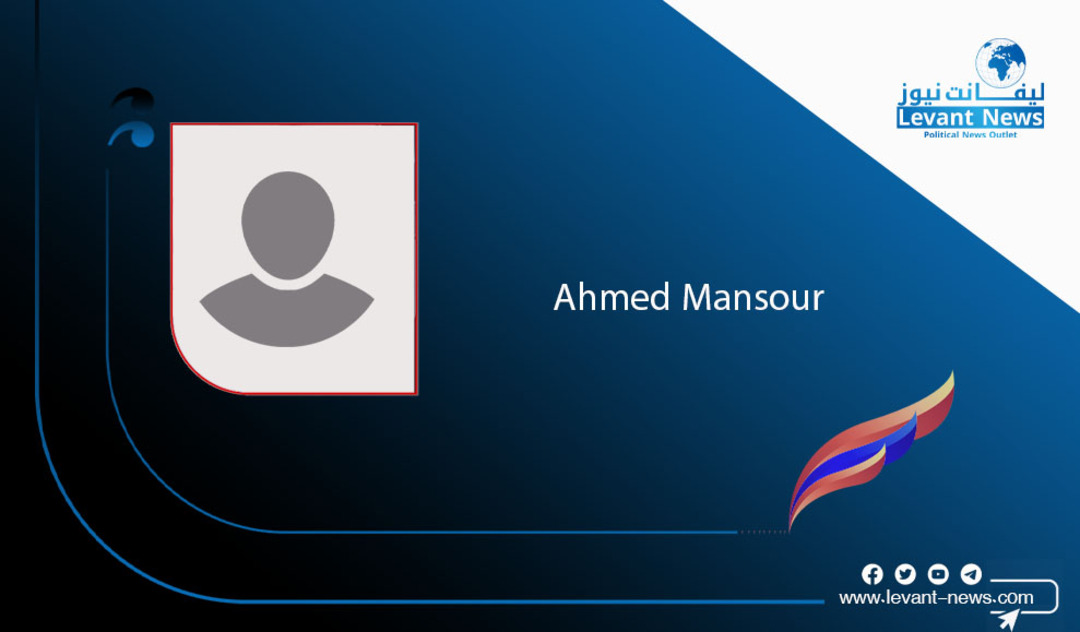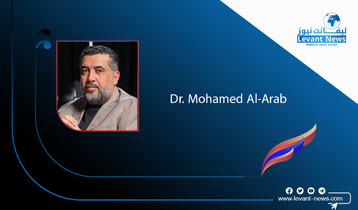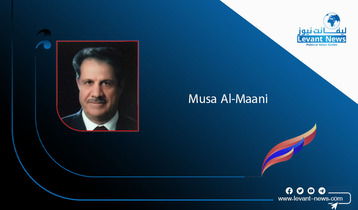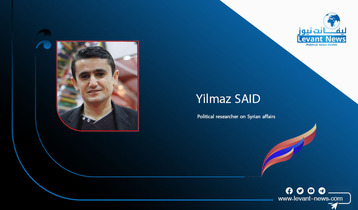-
Syria: Between Dictatorship Production and an Uncertain Future

In a predictable yet ambiguous move, Mr. Maher al-Sharaa, brother of President Ahmad al-Sharaa, has been appointed as Secretary-General of the Presidency. This appointment raises fundamental questions about the Syrian political landscape and clearly reflects what can be considered a return to "family dictatorship," reminiscent of previous models like Hafez al-Assad and his brother Rifaat, as well as Bashar al-Assad and Maher. It seems that Syria, far from being a state of institutions or the rule of law, is nearing a model of "family feudalism," where one family dominates the fate of the country.
This reality evokes the era of Assad's rule, which witnessed familial hegemony over the state’s apparatus, leading to the inheritance of power and its transformation into private property. Does this repetition of the same scenario, as if time had not changed, not raise a fundamental question? Are we facing a private family company, or a constitutional state where power is distributed according to constitutional and legal safeguards?
The story of Abu Al-Amyan, with its sharp humor, encapsulates a bitter Syrian reality. Abu Al-Amyan was walking alone when a skilled carpenter appeared on his right and a determined vendor on his left, yet the donkey refused to move. When Abu Al-Amyan inquired about the reason, a little girl surprised him with her cry: "If the donkey refuses to walk, what about the rest of the people, Abu Al-Amyan?!" This tale reflects, with humorous sorrow, the political stagnation suffered by the Syrian people, while citizens yearn for a long-awaited change, beginning with every step taken by the family that comes to power, controlling the state’s affairs without any signs of change on the horizon.
In light of this reality, a fundamental question arises about how to empower the Syrian people to aspire to a better future. Will the current situation, where the state is led by "the leader" and his family, continue? How can a real national state be built under the concentration of power in one family’s hands? The urgent need for real change in Syria requires the establishment of an institutional state based on law and constitution, moving away from the hegemony of the individual leader, leaving behind a backward legacy of “the leader lived, the leader died.”
Building a new Syria requires a clear vision of the rule of law, where laws are applied fairly and transparently, and independent institutions work to serve the people, free from the interests of individuals or families. These institutions must possess sufficient power to protect citizens' rights and build a just and democratic state—a state of human rights and citizenship where equality prevails among all.
Additionally, there must be a constitution that is respected and enforced at all levels, including the highest authorities. This new state should guarantee freedom of expression, political participation, and the safeguarding of civil rights for all citizens. Therefore, all state institutions must operate according to principles of independence, transparency, and accountability, with the responsibility of respecting and safeguarding the rights, stability, and security of citizens being the hallmark of an independent national judiciary, military, and national police, consistent with the best practices of military and security institutions in advanced countries.
In conclusion, building the future of Syria requires an effort that goes beyond merely changing positions; it necessitates a genuine political will to transform from a system based on one individual and one family to a state of institutions and law. Will the Syrians be able to achieve this transformation? Or will history repeat itself, and Syria remain at the mercy of the individual rule of a single family? The future remains to be seen, but we hold hope for a change in reality towards the better, and for the realization of Syrians’ dreams in a state that respects their rights and ensures them a bright future.
By political writer Ahmed Mansour
You May Also Like
Popular Posts
Caricature
BENEFIT AGM approves 10%...
- March 27, 2025
BENEFIT, the Kingdom’s innovator and leading company in Fintech and electronic financial transactions service, held its Annual General Meeting (AGM) at the company’s headquarters in the Seef District.
During the meeting, shareholders approved all items listed on the agenda, including the ratification of the minutes of the previous AGM held on 26 March 2024. The session reviewed and approved the Board’s Annual Report on the company’s activities and financial performance for the fiscal year ended 31 December 2024, and the shareholders expressed their satisfaction with the company’s operational and financial results during the reporting period.
The meeting also reviewed the Independent External Auditor’s Report on the company’s consolidated financial statements for the year ended 31 December 2024. Subsequently, the shareholders approved the audited financial statements for the fiscal year. Based on the Board’s recommendation, the shareholders approved the distribution of a cash dividend equivalent to 10% of the paid-up share capital.
Furthermore, the shareholders endorsed the allocation of a total amount of BD 172,500 as remuneration to the members of the Board for the year ended 31 December 2024, subject to prior clearance by related authorities.
The extension of the current composition of the Board was approved, which includes ten members and one CBB observer, for a further six-month term, expiring in September 2025, pending no objection from the CBB.
The meeting reviewed and approved the Corporate Governance Report for 2024, which affirmed the company’s full compliance with the corporate governance directives issued by the CBB and other applicable regulatory frameworks. The AGM absolved the Board Members of liability for any of their actions during the year ending on 31st December 2024, in accordance with the Commercial Companies Law.
In alignment with regulatory requirements, the session approved the reappointment of Ernst & Young (EY) as the company’s External Auditors for the fiscal year 2025, covering both the parent company and its subsidiaries—Sinnad and Bahrain FinTech Bay. The Board was authorised to determine the external auditors’ professional fees, subject to approval from the CBB, and the meeting concluded with a discussion of any additional issues as per Article (207) of the Commercial Companies Law.
Speaking on the company’s performance, Mr. Mohamed Al Bastaki, Chairman BENEFIT , stated: “In terms of the financial results for 2024, I am pleased to say that the year gone by has also been proved to be a success in delivering tangible results. Growth rate for 2024 was 19 per cent. Revenue for the year was BD 17 M (US$ 45.3 Million) and net profit was 2 Million ($ 5.3 Million).
Mr. Al Bastaki also announced that the Board had formally adopted a new three-year strategic roadmap to commence in 2025. The strategy encompasses a phased international expansion, optimisation of internal operations, enhanced revenue diversification, long-term sustainability initiatives, and the advancement of innovation and digital transformation initiatives across all service lines.
“I extend my sincere appreciation to the CBB for its continued support of BENEFIT and its pivotal role in fostering a stable and progressive regulatory environment for the Kingdom’s banking and financial sector—an environment that has significantly reinforced Bahrain’s standing as a leading financial hub in the region,” said Mr. Al Bastaki. “I would also like to thank our partner banks and valued customers for their trust, and our shareholders for their ongoing encouragement. The achievements of 2024 set a strong precedent, and I am confident they will serve as a foundation for yet another successful and impactful year ahead.”
Chief Executive of BENEFIT; Mr. Abdulwahed AlJanahi commented, “The year 2024 represented another pivotal chapter in BENEFIT ’s evolution. We achieved substantial progress in advancing our digital strategy across multiple sectors, while reinforcing our long-term commitment to the development of Bahrain’s financial services and payments landscape. Throughout the year, we remained firmly aligned with our objective of delivering measurable value to our shareholders, strategic partners, and customers. At the same time, we continued to play an active role in enabling Bahrain’s digital economy by introducing innovative solutions and service enhancements that directly address market needs and future opportunities.”
Mr. AlJanahi affirmed that BENEFIT has successfully developed a robust and well-integrated payment network that connects individuals and businesses across Bahrain, accelerating the adoption of emerging technologies in the banking and financial services sector and reinforcing Bahrain’s position as a growing fintech hub, and added, “Our achievements of the past year reflect a long-term vision to establish a resilient electronic payment infrastructure that supports the Kingdom’s digital economy. Key developments in 2024 included the implementation of central authentication for open banking via BENEFIT Pay”
Mr. AlJanahi concluded by thanking the Board for its strategic direction, the company’s staff for their continued dedication, and the Central Bank of Bahrain, member banks, and shareholders for their valuable partnership and confidence in the company’s long-term vision.
opinion
Report
ads
Newsletter
Subscribe to our mailing list to get the new updates!




















